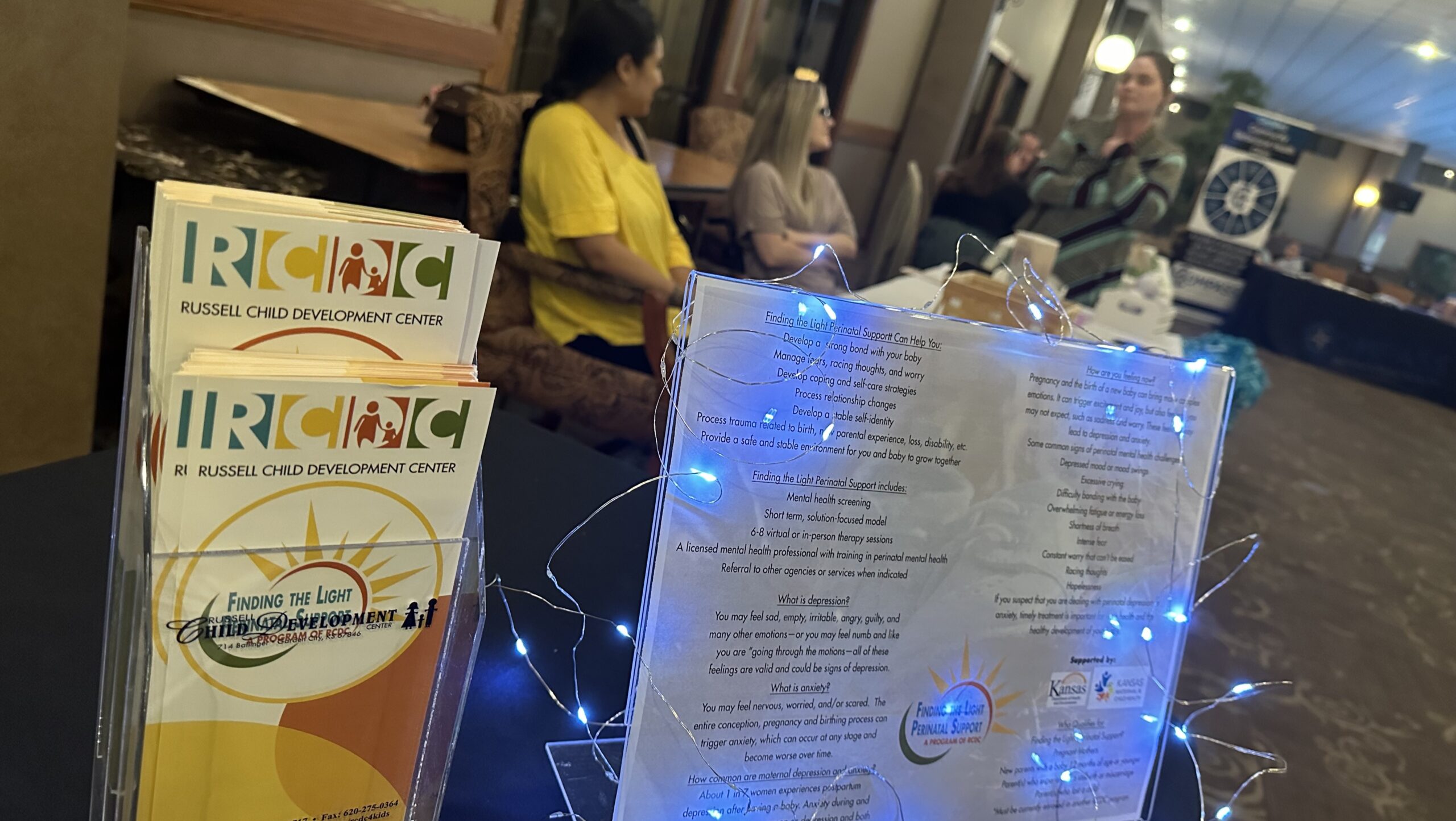
GARDEN CITY — Kim Everett wants people in western Kansas to know that it’s okay to ask for help with their mental health.
Everett, vice president of the Joshua B. Smith Foundation, organized the annual Connect 2 Care behavioral health and wellness event in Garden City earlier this month. The foundation is named for Everett’s late son, Joshua, who died in 2019 from adverse side effects caused by his medication. The foundation was formed in 2020 to support Smith’s children and keep his memory alive through fundraisers such as softball tournaments and events like the wellness fair.
“Usually, it’s in September but we had to push it back this year,” Everett said at the Oct. 5 event. “He was a great kid, everybody loved him. All of his friends still call me ‘mom.’”
Everett said this year’s wellness event was under-attended because of a change in venue from the Finney County Public Library to the Clarion Inn in Garden City. The wellness fair featured booths from Everett’s foundation, as well as Compass Behavioral Health and faith-based groups such as City on a Hill, which assists people with addiction recovery and substance abuse treatment.
“The hope is that (this event) gets bigger and bigger,” Everett said, “and we can just reach more people.”
Everett said there’s increased awareness in western Kansas, but not increased resources, for those seeking mental health care. She said the COVID-19 pandemic also hampered efforts to address some of those mental health care needs. The state of Kansas ranked 51st – dead last – in the nation last year for access and quality of mental health resources, both for youths with substance abuse issues and for overall adult care, according to Mental Health America. The organization used data through 2020 to compile last year’s list.
Nationally, according to Mental Health America, more than 12 million adults reported serious thoughts of suicide during the pandemic. For youths, 16% suffered from at least one major depressive episode.
“With Kansas ranking last, it’s important to use to promote that there’s help available, that you’re not alone and there are resources here,” Caitlin Everett-Klaus said. Everett-Klaus is Everett’s daughter and president of the Joshua B. Smith Foundation.
“We’re still breaking the stigma (of mental health) in our family,” Everett-Klaus said. “It’s hard, because people don’t understand ‘people first’ language, they want to go with ‘disorder first’ language, and it’s like, you’re not just your bipolar, you’re not just your depression, you’re not just whatever you have.”
Everett-Klaus said it’s important for people to place others first when discussing mental health care, and not just reducing a person down to their disorder.
Compass Behavioral Health program manager Glenda Griffin works directly with people in the Garden City region who have mental health care needs. She said rural residents only have two options for crisis care, at facilities in Wichita and Hutchinson, which means any rural residents on the western side of the state must travel long distances for care. Her office supports those people in need by providing transportation and on-call crisis services.
Griffin said more mental health professionals — and more funding for those positions — are needed in western Kansas.
“We have 34 staff, not including clerical, and in between 175 to 200 clients served,” Griffin said. “Changes in the seasons lead to increased numbers of crises, the holiday season sees an increase in crises.”
Griffin said the most urgent need is for crisis staffers to work the 12 p.m. to 9 p.m. shift on weekdays and full weekends. In her experience, she said, mental health stigmas still exist among certain cultural groups or across generations of families. The key to breaking down those stigmas, she said, is continued education.
